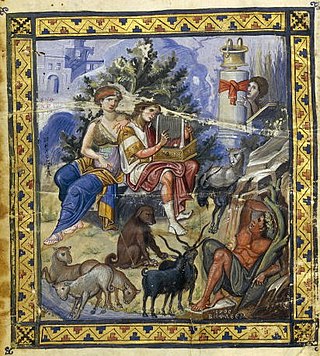
The Book of Psalms, also known as the Psalms, or the Psalter, is the first book of the third section of the Hebrew Bible called Ketuvim ("Writings"), and a book of the Old Testament.

The Whole Booke of Psalmes Faithfully Translated into English Metre, commonly called the Bay Psalm Book, is a metrical psalter first printed in 1640 in Cambridge, Massachusetts. It was the first book printed in British North America. The psalms in it are metrical translations into English. The translations are not particularly polished, and none have remained in use, although some of the tunes to which they were sung have survived ; however, its production, just 20 years after the Pilgrims' arrival at Plymouth, Massachusetts, represents a considerable achievement. It went through several editions and remained in use for well over a century.

A metrical psalter is a kind of Bible translation: a book containing a verse translation of all or part of the Book of Psalms in vernacular poetry, meant to be sung as hymns in a church. Some metrical psalters include melodies or harmonisations. The composition of metrical psalters was a large enterprise of the Protestant Reformation, especially in its Calvinist manifestation.

Psalm 119 is the 119th psalm of the Book of Psalms, beginning in the English of the King James Version: "Blessed are the undefiled in the way, who walk in the law of the Lord". The Book of Psalms is in the third section of the Hebrew Bible, the Khetuvim, and a book of the Christian Old Testament. The psalm, which is anonymous, is referred to in Hebrew by its opening words, "Ashrei temimei derech". In Latin, it is known as "Beati inmaculati in via qui ambulant in lege Domini".

Psalm 23 is the 23rd psalm of the Book of Psalms, beginning in English in the King James Version: "The Lord is my shepherd". In Latin, it is known by the incipit, "Dominus regit me". The Book of Psalms is part of the third section of the Hebrew Bible, and a book of the Christian Old Testament. In the slightly different numbering system used in the Greek Septuagint and Latin Vulgate translations of the Bible, this psalm is Psalm 22.
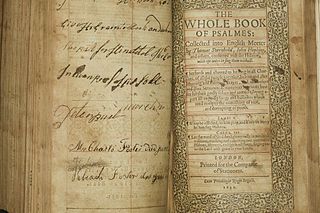
Thomas Sternhold (1500–1549) was an English courtier and the principal author of the first English metrical version of the Psalms, originally attached to the Prayer-Book as augmented by John Hopkins.
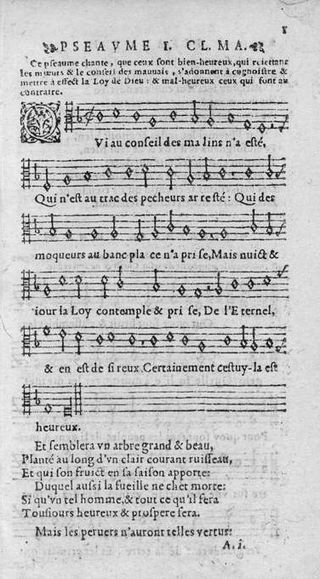
Exclusive psalmody is the practice of singing only the biblical Psalms in congregational singing as worship. Today it is practised by several Protestant, especially Reformed denominations. Hymns besides the Psalms have been composed by Christians since the earliest days of the church, but psalms were preferred by the early church and used almost exclusively until the end of the fourth century. During the Protestant Reformation, Martin Luther and many other reformers, including those associated with the Reformed tradition, used hymns as well as psalms, but John Calvin preferred the Psalms and they were the only music allowed for worship in Geneva. This became the norm for the next 200 years of Reformed worship. Hymnody became acceptable again for the Reformed in the middle of the nineteenth century, though several denominations, notably the Reformed Presbyterians, continue the practice of exclusive psalmody.

The Genevan Psalter, also known as the Huguenot Psalter, is a 1539 metrical psalter in French created under the supervision of John Calvin for liturgical use by the Reformed churches of the city of Geneva in the sixteenth century.
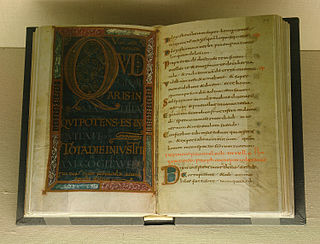
There exist a number of translations of the Book of Psalms into the Latin language. They are a resource used in the Liturgy of the Hours and other forms of the canonical hours in the Latin liturgical rites of the Catholic Church.
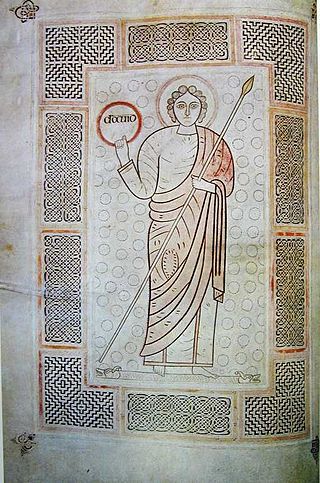
Psalm 100 is the 100th psalm in the Book of Psalms in the Tanakh. In English, it is translated as "Make a joyful noise unto the Lord, all ye lands" in the King James Version (KJV), and as "O be joyful in the Lord, all ye lands" in the Book of Common Prayer (BCP). Its Hebrew name is מִזְמוֹר לְתוֹדָה, 'Mizmor l'Todah' and it is subtitled a "Psalm of gratitude confession". In the slightly different numbering system in the Greek Septuagint version of the Bible, and in the Latin Vulgate, this psalm is Psalm 99. In the Vulgate, it begins Jubilate Deo, or Jubilate, which also became the title of the BCP version.
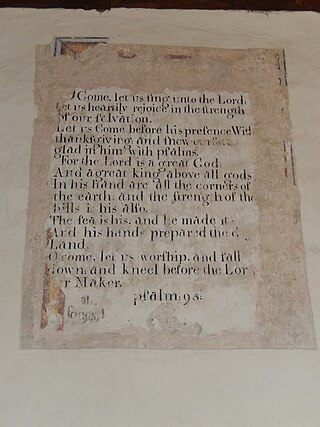
Psalm 95 is the 95th psalm of the Book of Psalms, beginning in English in the King James Version: "O come, let us sing unto the LORD: let us make a joyful noise to the rock of our salvation". The Book of Psalms starts the third section of the Hebrew Bible, and, as such, is a book of the Christian Old Testament. In the slightly different numbering system in the Greek Septuagint version of the Bible, and in the Latin Vulgate, this psalm is Psalm 94. In Latin, it is known as "Venite exultemus" or simply "Venite". The psalm is a hymn psalm, one of the Royal psalms, praising God as the King of His people. Psalm 95 identifies no author, but Hebrews 4:7 attributes it to David. The Vulgate also names David as the author.
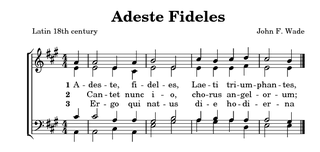
A hymn tune is the melody of a musical composition to which a hymn text is sung. Musically speaking, a hymn is generally understood to have four-part harmony, a fast harmonic rhythm, with or without refrain or chorus.

Psalm 147 is the 147th psalm of the Book of Psalms, beginning in English in the King James Version, "Praise ye the LORD: for it is good to sing praises". In the slightly different numbering system used in the Greek Septuagint version of the Bible, and in the Latin Vulgate/Vulgata Clementina, this psalm is divided into Psalm 146 and Psalm 147. In Latin, Psalm 146 is known as "Laudate Dominum quoniam bonum psalmus", and Psalm 147 as "Lauda Jerusalem Dominum".

Psalm 42 is the 42nd psalm of the Book of Psalms, often known in English by its incipit, "As the hart panteth after the water brooks". The Book of Psalms is part of the third section of the Hebrew Bible, and a book of the Christian Old Testament. In the Hebrew Bible, Psalm 42 opens the second of the five books (divisions) of Psalms, also known as the "Elohistic Psalter" because the word YHWH is rarely used and God is generally referred to as "Elohim".

Psalm 1 is the first psalm of the Book of Psalms, beginning in the English King James Version: "Blessed is the man", and forming "an appropriate prologue" to the whole collection according to Alexander Kirkpatrick. The Book of Psalms is part of the third section of the Hebrew Bible, and a book of the Christian Old Testament. In Latin, this psalm is known as "Beatus vir" or "Beatus vir, qui non abiit".

Psalm 32 is the 32nd psalm of the Book of Psalms, beginning in English in the King James Version: "Blessed is he whose transgression is forgiven". The Book of Psalms is part of the third section of the Hebrew Bible, and a book of the Christian Old Testament. In the slightly different numbering system used in the Greek Septuagint and Latin Vulgate translations of the Bible, this psalm is Psalm 31. In Latin, it is known by the incipit, "Beati quorum". The psalmist expresses the joy of being released from great suffering.

Psalm 143 is the 143rd psalm of the Book of Psalms, beginning in English in the King James Version: "Hear my prayer, O LORD". In the slightly different numbering system used in the Greek Septuagint version of the Bible, and the Latin Vulgate, this psalm is Psalm 142. In Latin, it is known as "Domine exaudi orationem meam". It is part of the final Davidic collection of psalms, comprising Psalms 138 to 145, which are specifically attributed to David in their opening verses. It is one of the seven Penitential Psalms. The New King James Version calls it "An Earnest Appeal for Guidance and Deliverance". The psalm has two equal sections, verses 1-6 and 7-12, separated by a Selah.

Psalm 50, a Psalm of Asaph, is the 50th psalm from the Book of Psalms in the Bible, beginning in English in the King James Version: "The mighty God, even the LORD, hath spoken, and called the earth from the rising of the sun unto the going down thereof." In the slightly different numbering system used in the Greek Septuagint and Latin Vulgate translations of the Bible, this psalm is Psalm 49. The opening words in Latin are Deus deorum, Dominus, locutus est / et vocavit terram a solis ortu usque ad occasum. The psalm is a prophetic imagining of God's judgment on the Israelites.

Psalm 63 is the 63rd psalm of the Book of Psalms, beginning in English in the King James Version: "O God, thou art my God; early will I seek thee". In the slightly different numbering system of the Greek Septuagint version of the Bible and the Latin Vulgate, this psalm is Psalm 62. In Latin, it is known as "Deus Deus meus". It is attributed to King David, set when he was in the wilderness of Judah, and its theme concerns being stranded in the wilderness away from one's family.

The Scottish Psalter of 1564 was the first psalter or psalm book to be published in Scotland. It was published by the Church of Scotland under the influence of John Knox as part of the Book of Common Order which was a more general directory for public worship. The precise details concerning the publication of the Scottish Psalter are not known as the early records of the Church of Scotland are lost. However, it appears that its publication was determined at the Church's General Assembly in December 1562.


















